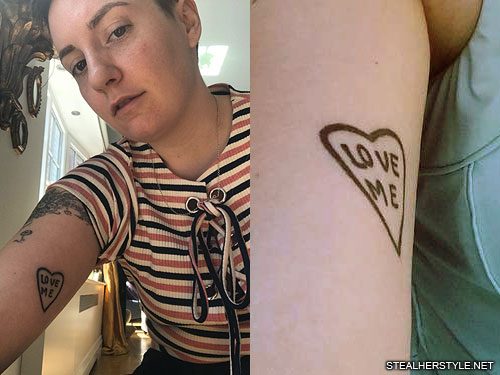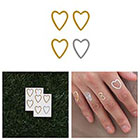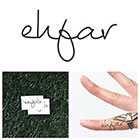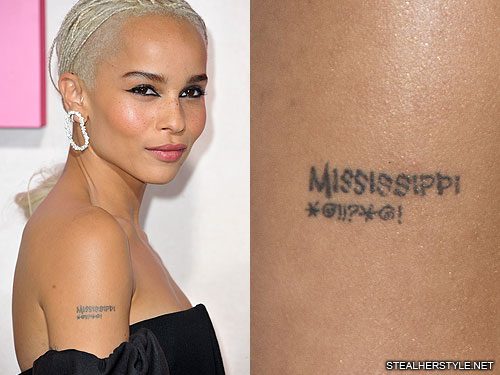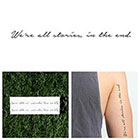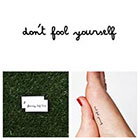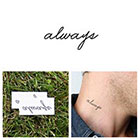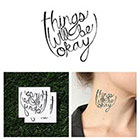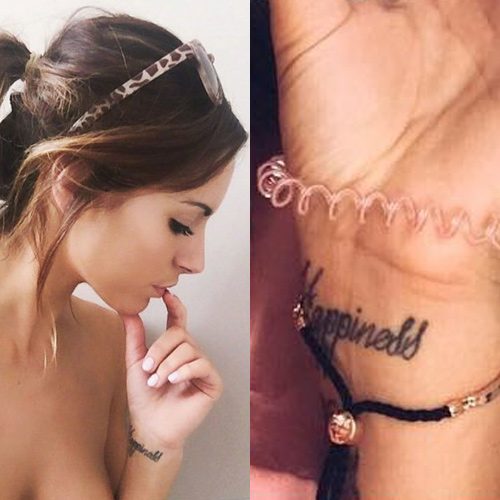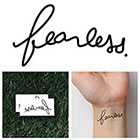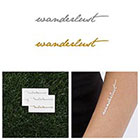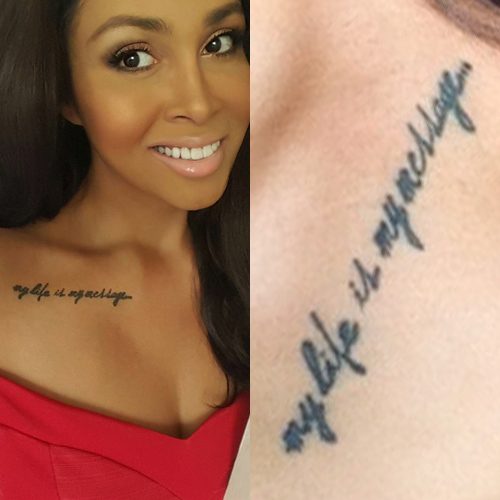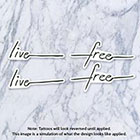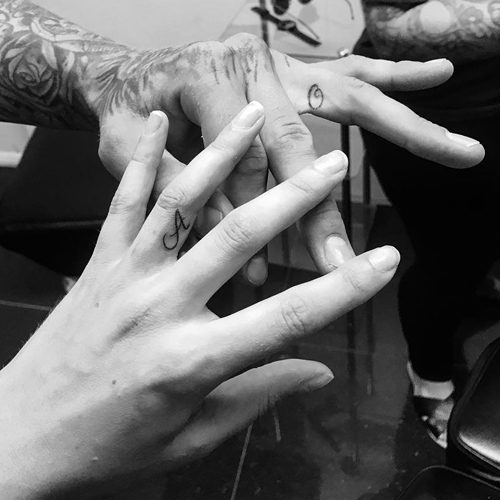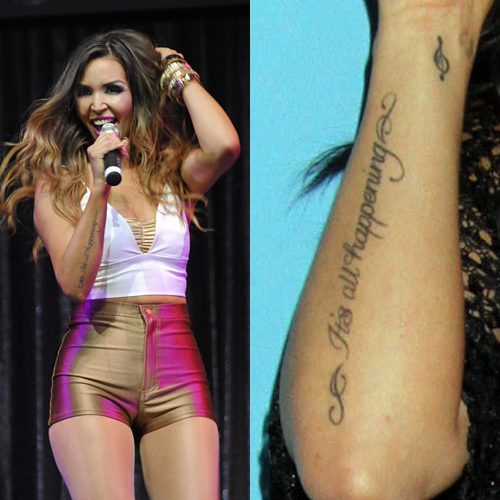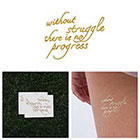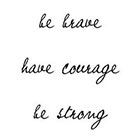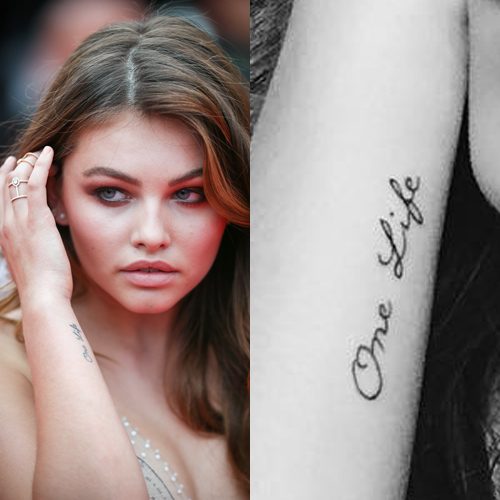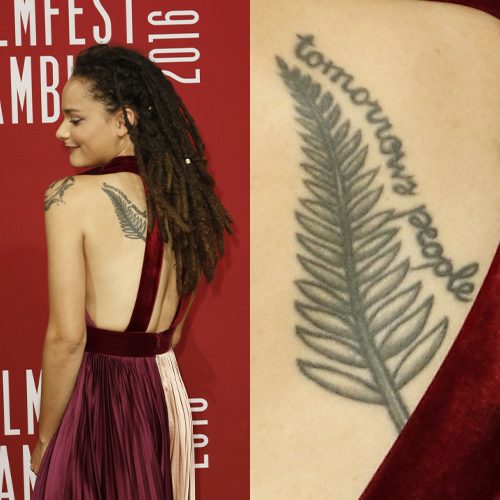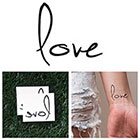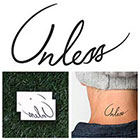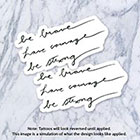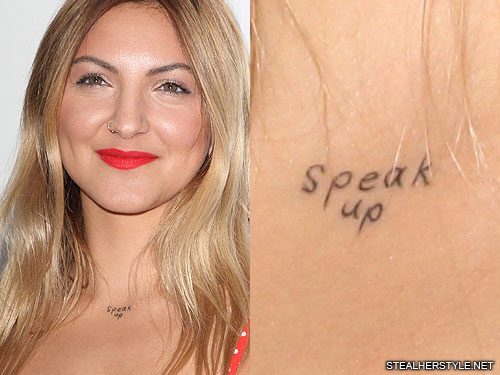Zoë Kravitz has a tattoo on her upper right arm which “Mississippi” on one line with a bunch of keyboard symbols “*@!!?*@!” on the next. It represents the song “Mississippi Goddamn” by Nina Simone with the symbols used to censor the expletive word. Zoe is a big fan of Nina’s music and likes to fall asleep to her albums. She told Harper’s Bazaar:
“Even if I don’t go out, I have a hard time falling asleep, so I go to bed around 1 A.M. I listen to a lot of jazz when I’m getting ready for bed: Nina Simone and Billie Holiday.”
The song “Mississippi Goddamn” was released in 1964 at the height of the African-American civil rights movement and speaks about the struggles that black people faced while fighting for equality and how she is sick of waiting for slow change. Although much progress has been made, unfortunately racism is still present today and as a biracial woman Zoë Kravitz has experienced it first-hand. She has spoken openly about her struggles learning to accept her own racial identity and the typecasting that she experiences in Hollywood. She told Allure:
“Racism is very real, and white supremacy is going strong. I am definitely mixed. Both my parents are mixed. I have white family on both sides. The older I get, the more I experience life, I am identifying more and more with being black, and what that means — being more and more proud of that and feeling connected to my roots and my history. It’s been a really interesting journey because I was always one of the only black kids in any of my schools. I went to private schools full of white kids. I think a lot of that made me want to blend in or not be looked at as black. The white kids are always talking about your hair and making you feel weird. I had this struggle of accepting myself as black and loving that part of myself. And now I’m so in love with my culture and so proud to be black. It’s still ongoing, but a big shift has occurred. My dad especially has always been very connected to his history, and it’s important to him that I understand where I come from.”
She hopes she can provide more representation for mixed-race women through her work in the public eye — acting, modeling, and singing — since she herself did not see many mixed-race women in those roles when she was growing up.
(more…)
Similar Products:

